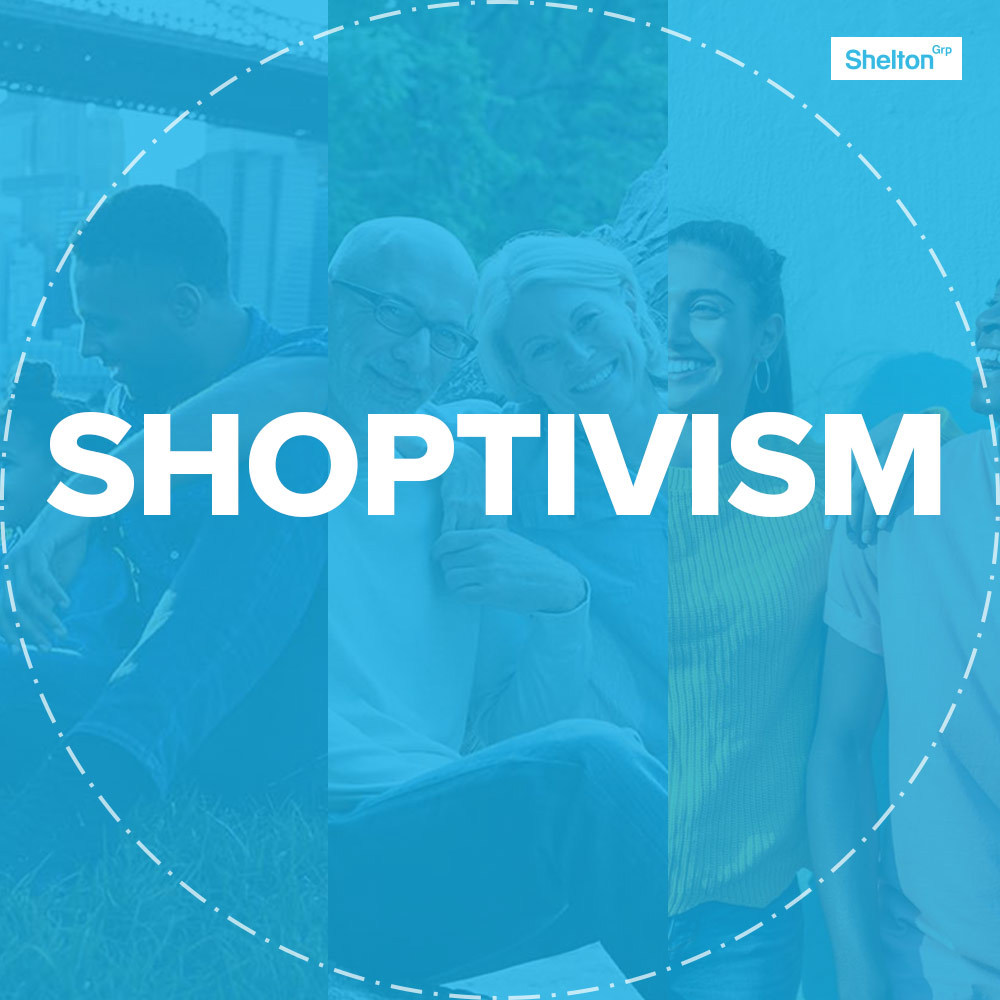Two ways the SEC’s new climate disclosure proposal is good for your brand positioning
Shelton Stat of the Week
In America, 29% of people say a company’s environmental or social reputation has a strong to very strong impact on their decision to buy the company’s products.
—Good Company, December 2020-January 2021
You’ve likely already heard about the SEC’s proposal to require publicly traded companies to disclose:
- The climate change-related risks to their business’ financial performance, strategy and business model
- Transition plans for managing climate risks
- Scope 1, Scope 2 and possibly Scope 3 emissions
The SEC has put out a handy three-page fact sheet to accompany its more than 500-page proposal, and it lays out the rationale for this proposal as such:
Many investors are concerned about the potential impacts of climate-related risks to individual businesses. As a result, investors are seeking more information about the effects of climate-related risks on a company’s business to inform their investment decision-making. Investors also have expressed a need for more consistent, comparable and reliable information about how a registrant has addressed climate-related risks when conducting its operations and developing its business strategy and financial plan. The proposed rules are intended to enhance and standardize climate-related disclosures to address these investor needs.
Now, we’ve all been seeing increasing investor interest in this topic since about 2018. But this move by the SEC formalizes that interest into an apples-to-apples disclosure framework to enable investment decision-making.
While the US Chamber of Commerce has published a broad statement of opposition to the SEC’s approach, it seems their real pushback is about reporting on Scope 3 emissions. Indeed, these are the hardest to uncover/track/manage because they’re related to a supplier’s impacts rather than to the direct impacts of companies buying from those suppliers. But holding suppliers accountable to reducing their impacts is, indeed, a way large companies can affect wholesale change (see Walmart’s Project Gigaton for a good example of how that works).
As an ESG marketing professional, my Spidey senses say this all points to positioning opportunities. Here’s how:
- Privately held companies that have already been reporting on environmental impacts can immediately begin saying, “For years, we’ve been doing what the SEC is now proposing that public companies do, because it’s the right thing to do.” This is one more proof point in your positioning as a Good Company.
Public companies that have already been doing what the SEC is now requiring can immediately tell a similar story: “For years, we’ve been doing what the SEC is now considering making a requirement, because being good stewards of the planet we call home is how we roll.”
- The bigger opportunity, though, is the longer range one. Today, saying your company will be carbon neutral by X date is still somewhat differentiating. Soon, it won’t be. Everybody will have the same targets and simply talking about GHG emissions will be telling a compliance story, basically — and that’s not going to attract new employees or excite consumers about buying your products.
Consumers and employees, though, are still going to prioritize working for and buying from Good Companies. So, you’ll need to decide what you’re going to do to position your company as one. What will you do to go beyond carbon neutrality? What will you do to go beyond working with your suppliers to reduce their impacts?
The social side of the equation offers a lot of opportunities for differentiation as well. People in America already care most about what companies are doing for their employees as a way of evaluating which companies are Good and which are Bad. So, what can you do for your employees that positions you as a leader? What can you do for your communities … for people in general?
The companies that grab the reins and tell their story of being ahead of the curve on climate change can entrench their positions as Good Companies and stay ahead of the curve (and ahead of compliance) on the social piece of the ESG equation. And that will pay dividends — not only with investors but also with employees, customers and end users.

SEC proposes landmark climate rule
— E&Politico
Many companies have been adhering to or adapting ESG standards over the past few years, but now the SEC is proposing that all companies follow suit. This Politico article discusses what the SEC’s proposal would require from companies.
Read more…

Climate change: What the SEC proposal means for companies, auditors
— Journal of Accountancy
A company’s ESG practices have largely been investor-driven, analyzing investments with climate risk in mind. This Journal of Accountancy article details what the SEC’s proposal means for companies from an accounting and finance perspective and what potential processes and positions might be beneficial if the proposal goes through.
Read more…
Shoptivism: Why Consumers (& Job Seekers) Opt In & Out of Today’s Brands
Sustainability is now mainstream and it’s affecting purchase behavior.
Every year we ask Americans if they’ve ever intentionally purchased or not purchased a product or service based on the social or environmental record of the manufacturer. We then ask everyone who says “yes” to name the brand. Those who say “yes” and can give an example of a brand unaided? We call them shoptivists.
But who are these “shoptivists?”
Our latest report answers this question with three distinct consumer profiles, including details on their mental models, their shopping patterns, the messages that resonate, and where to find them.


-
TAGS:Corporate Sustainability, Efficiency & Conservation, Environmental Issues